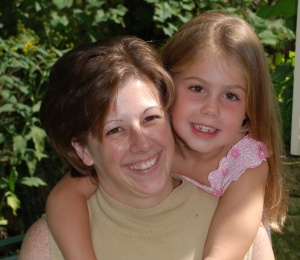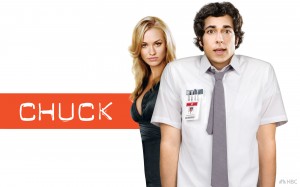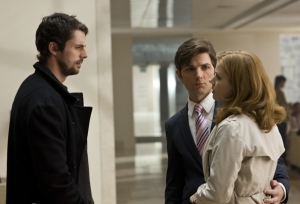If you’re a regular reader here, you know I don’t do interviews with stuffy people. If I’m gonna sit down to a lunch interview, have a phone conversation and exchange a bunch of e-mails with someone, that person had better be interesting, funny, smart and look good in a Speedo. Brad Parks is three out of four so I heartily welcome him to Pop Culture Nerd.

Brad is the debut author of Faces of the Gone, a mystery about Newark newspaper reporter Carter Ross investigating the case of four dead bodies found in an empty lot with execution-style bullet holes in their heads. The novel provides an unflinching look at life on inner-city streets and in the newsroom, leavened by a healthy dose of humor.
For intimate details about Brad and to see him in a turtleneck, visit his website. But first, read on for our nerd chat.
Pop Culture Nerd: You’ve been all over the blogosphere promoting your book and given shout-outs by everyone from the New York Times to the Sun-Sentinel. Since this is our first time together, I gotta ask: Have you been tested?
Brad Parks: You know what they say—when you blog, you’re not only blogging the blogger, you’re blogging every person they’ve ever blogged. So I might be a bit dodgy, yes. I mean, just blogging at Jen’s Book Thoughts alone probably made me filthy. That skanky ho Jen Forbus gets around.

The infamous Jen Forbus with her niece
PCN: Hose yourself down with Lysol, man! She’s been with everyone in the crime fic community, male and female. But I’ve got my hazmat suit on so we can continue. What was the biggest thrill for you on pub day? Did you go to stores, point to your book and yell at strangers, “That’s me!”?
BP: Honestly? While my pub month was a string of incredible, wonderful, I’ll-never-forget-them happenings, my actual pub day was a bit crushing. In my mind, December 8, 2009 was something I had been building up for years—behind perhaps only my wedding and my kids being born (but ahead of, say, college graduation) in terms of significant days in my life. But to everyone else it was just a Tuesday.
Nevertheless, I got dressed up in my best author outfit, stuffed a Sharpie in my pocket and charged out the door to meet my public. I first went to my local independent bookstore, where the owner (who is a friend) had been so busy with the holiday rush, she hadn’t had time to put my book on the shelves yet. Next, I started in on the chain stores.
Now, mind you, I wasn’t expecting to be anywhere near the front of these stores—that’s something you’ve got to earn. I wasn’t expecting to be face out on the New Mystery shelf, because that’s valuable real estate, too. But I’m with St. Martin’s Press, a reputable publisher, so I was thinking each store would have at least one copy. Even if it was stuffed in a musty corner somewhere, I would proudly sign each one, whereupon Cherubim and Seraphim would strike a heavenly chord, even if I was the only one who could hear them.
Instead, I got this succession of blank stares from store managers, and it quickly became clear to me that until I darkened their doorstep, they had no plans on stocking my book. After the fourth no-show, I gave up and bought myself a cheeseburger, which I ate alone. It tasted a lot like humble pie.
PCN: But then all the rave reviews and best-of year-end mentions started pouring in. Has your head blown up to melon size? How has your life changed since you became a published author?
BP: You may ask Brad Parks this question, which Brad Parks will be glad to answer, since you clearly acknowledge that He is a Better Person than you. No, seriously, the reviews have been lovely. And there have been some Sally Field you-like-me-you-really-like-me moments, when I’ve felt the warm glow of knowing my words were appreciated somewhere. Other than that, I don’t feel all that different. I mean, don’t get me wrong, my wife complains I talk about myself too much, but she did that before I was published, too.
PCN: Any interesting tour anecdotes you can share?
 BP: Well, I wrote about this one for Shelf Awareness. To give you the Cliffs Notes version, it basically involves me white-knuckle-driving my way through an ice storm to a bookstore, where I figured I’d end up sitting in front of a large pile of my books in an empty store. But then…aw, heck, I won’t ruin it. Just click on the link if you’re curious. And promise you’ll come back to PCN when you’re done!
BP: Well, I wrote about this one for Shelf Awareness. To give you the Cliffs Notes version, it basically involves me white-knuckle-driving my way through an ice storm to a bookstore, where I figured I’d end up sitting in front of a large pile of my books in an empty store. But then…aw, heck, I won’t ruin it. Just click on the link if you’re curious. And promise you’ll come back to PCN when you’re done!
PCN: Thanks for sending both my readers over there. Now I’ll have to pay two other people to read this. You’ve said Carter is a lot like you, but if you could be like any character in crime fiction, who would it be?
BP: This answer probably changes on a daily basis. But today I feel like being Jack Reacher, who has spent all summer digging ditches and has puffed up to 250 heavily muscled pounds. And then I’d go play pick-up basketball. Having otherwise gone through life as a scrawny white guy, I’d like to be able to set a pick that means something for once.
PCN: Did you tell Lee Child about your Reacher daydreams when you fetched him a Coke at last year’s Bouchercon?
BP: I did tell Lee I daydream about being Reacher. Then he replied, “That’s funny, I dream of being Carter Ross.” Then we bro-hugged. Then I woke up.
PCN: Which other authors turn you into a gushing fanboy?
BP: I would say Harlan Coben. I’ll know I’ve really arrived when I can spend time with Harlan and not have this little voice in my head—it sounds like an 11-year-old girl—constantly going, Omagod, omagod, I’m hanging out with HARLAN COBEN, omagod! Hasn’t happened yet.
PCN: I like how you equated the process of writing to open-water distance swimming in one of your guest blogs. What do you do if you get a cramp? Or jump in then realize you’re not a distance swimmer? And are Speedos or trunks better for that kind of swimming?
BP: I’ll take the last part of this question first, because it’s important to state—before any bad images get planted in anyone’s head—that I am a trunks-only man. No one needs to see my upper thighs.
As to the rest of the question: Obviously, you ought to have some minimum level of swimming competency, built in the safety of shallow backyard pools and municipal swimming holes. (Or, to extend the metaphor back to writing, stories in school literary magazines, articles in local newspapers or entries in personal journals).
But once you have that, I believe you need to throw yourself in over your head and make yourself swim for your life, cramps and all. That’s the whole point of open water distance swimming. You can’t just stop and walk. You have no choice but to keep going. And I think writers with unfinished manuscripts—know anyone like that?— would be well-served to think of their work that way.
PCN: One of your characters, Tee, has a booming business making R.I.P. T-shirts for gangbangers who get gunned down. The idea is both horrible and savvy. Is it based on something you encountered for real?
BP: Yep, that one is, as they say on Law & Order, ripped from the headlines. As a journalist working in a depressed inner-city, I was constantly fascinated (and saddened and appalled) by the culture of death that surrounds young people in areas with high murder rates. One day, I saw a set of R.I.P T-shirts wrapped to a telephone pole at a housing project in Newark—three kids, all killed before their 21st birthdays. I started poking around and learned there was a whole cottage industry of creating and displaying these shirts. Kids would actually wear them on the anniversaries of the days their friends got killed. So I wrote a story about it.
 PCN: And then you wrote two more, books 2 and 3 in the Carter Ross series. The second one is called Eyes of the Innocent. Are you branding this as the body parts series, a la Sue Grafton’s alphabet books? What happens when you travel south of the beltline?
PCN: And then you wrote two more, books 2 and 3 in the Carter Ross series. The second one is called Eyes of the Innocent. Are you branding this as the body parts series, a la Sue Grafton’s alphabet books? What happens when you travel south of the beltline?
BP: Yeah, the body parts thing is going to be my schtick. And as I’ve told my agent, when we reach Thumbs Up My Ass we’ll know it’s time to quit.
PCN: Okay, so let’s just stay north of the nipples for now. You mentioned in another interview, #817, that you might write a non-fiction book one day. Would it be true crime or something else?
BP: That was actually interview No. 788. Please try to keep count. And, sure, I might write non-fiction someday. Maybe true crime. Maybe ghost-writing for some famous person. Maybe history. Maybe something else entirely. My curiosity is fairly boundless, and I started writing for newspapers when I was 14, so non-fiction is still pretty comfortable for me. More than anything—having gone back and forth between fiction and non—I find they’re a lot more similar than most folks realize.
At the end of the day, it’s all about telling a story. The only difference is whether you have to find the pertinent facts or make them up. Which, I would argue, are roughly equal in difficulty.
PCN: Lying, er, making up stuff is so NOT difficult for me. If you had to choose between writing books that sell 50 million copies each but are critically lambasted (I’m not mentioning names), or those that win busloads of awards but have only modest sales numbers, which would you prefer?
BP: Oh, this one’s easy: Give me the 50 million copies. And then give me 50 million more. Go ahead and shake your head and say, “Brad! How whorish!” And I am. But as commercial as that sounds, there are real, artistic reasons behind it.
See, I’ve never really written for myself. For me, the joy in the creative process has always been in the sharing, and in the reaction it provokes. I write with the hope my words have an impact on people, whether it’s to inform, to entertain, or just to make them shake their heads at something. I want that impact to be as broad as possible.
And it’s not about money. I get just as much of a charge from the fan letter that starts “I bought your book at the store and…” as I do from one that begins, “I got your book at the library…” Do I want critics to like my books and to win awards? Of course. But ultimately it’s because I know those things will increase the size of my audience. And for me, that’s what it’s all about.
 Did you catch the Chuck season three premiere last night? Talk about two satisfying hours of television. I’ve always enjoyed this show, but now that Chuck (Zachary Levi) has downloaded the Intersect v.2 into his head, giving him access to skills like kung fu and flamenco-guitar playing, the fun factor has ratcheted up a few notches.
Did you catch the Chuck season three premiere last night? Talk about two satisfying hours of television. I’ve always enjoyed this show, but now that Chuck (Zachary Levi) has downloaded the Intersect v.2 into his head, giving him access to skills like kung fu and flamenco-guitar playing, the fun factor has ratcheted up a few notches.











